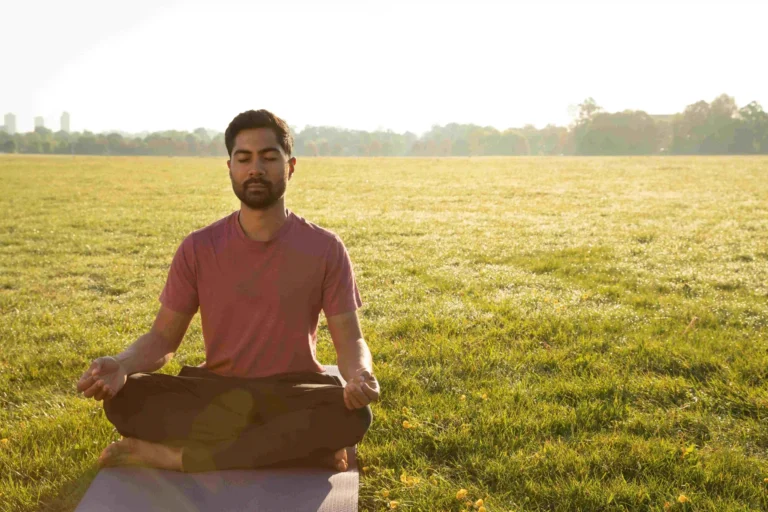
In today’s fast-paced world, it’s easy to get caught up in the constant rush of deadlines, social media notifications, and responsibilities. Many of us live on autopilot—reacting to life rather than truly experiencing it. But what if the secret to lasting happiness isn’t about doing more, achieving more, or owning more, but about being more present? That’s the essence of mindful living, a simple yet powerful approach that helps you slow down, appreciate life, and find genuine joy in everyday moments.
This article explores what mindful living really means, how it can transform your happiness, and practical steps to make it part of your daily routine.
What Is Mindful Living?
Mindful living is the practice of being fully aware of your thoughts, emotions, surroundings, and actions—without judgment. It’s about being present in each moment rather than dwelling on the past or worrying about the future.
When you live mindfully, you’re not rushing through life or letting stress control your day. You’re intentionally focusing on what’s happening right now, whether it’s sipping your morning tea, walking outside, or having a conversation with a loved one.
This awareness doesn’t mean ignoring challenges; rather, it allows you to face them with clarity and calm. Over time, mindful living helps you create a deeper connection with yourself and the world around you—leading to greater happiness and peace.
The Link Between Mindfulness and Happiness
Research consistently shows that mindfulness promotes emotional well-being. When we practice being present, we reduce the grip of negative thoughts, stress, and anxiety.
Mindfulness rewires how the brain responds to life. Studies reveal that it enhances activity in regions associated with compassion and emotional regulation while reducing overactivity in the areas linked to fear and worry.
Simply put, when you’re mindful, your brain learns to handle challenges more calmly and enjoy positive moments more deeply. You become less reactive, more patient, and more content. Instead of chasing happiness in external things—like success or possessions—you discover it in the simple beauty of each moment.
How Mindful Living Improves Your Daily Life
Mindful living isn’t just a spiritual or mental practice—it has real, practical benefits that can change how you feel and function every day.
1. Reduced Stress and Anxiety
When you’re mindful, you stop letting your mind spiral into “what if” scenarios. You learn to recognize stressful thoughts and let them pass instead of feeding them. This helps lower cortisol (the stress hormone), leading to better sleep, stable mood, and improved heart health.
2. Better Relationships
Mindfulness teaches you to listen deeply and communicate with empathy. By being fully present with others, you build stronger, more meaningful connections. You also become more patient, less reactive, and better at resolving conflicts calmly.
3. Enhanced Focus and Productivity
A mindful mind is a focused mind. When you train your brain to stay in the moment, you stop multitasking and start working with greater attention and creativity. Even short mindfulness breaks during work can sharpen concentration and prevent burnout.
4. Physical Health Benefits
Mindful living influences your body as much as your mind. It encourages healthier habits—like eating more slowly, choosing nutritious foods, and recognizing when your body needs rest. People who practice mindfulness often experience lower blood pressure, improved digestion, and a stronger immune system.
5. Emotional Balance and Resilience
By acknowledging emotions without judgment, you stop being controlled by them. Mindful living helps you respond thoughtfully instead of reacting impulsively. Over time, this builds resilience—the ability to bounce back from life’s challenges with calm and confidence.
Practical Ways to Cultivate Mindful Living
You don’t need to spend hours meditating to live mindfully. It’s about small, intentional changes in how you experience your day.
1. Start Your Morning with Intention
Before reaching for your phone, take a few deep breaths and set a simple intention for your day. Ask yourself, “How do I want to feel today?” or “What do I want to focus on?” Starting your day with awareness helps you stay grounded.
2. Practice Mindful Eating
Eat slowly, savor each bite, and pay attention to the taste, texture, and aroma of your food. Avoid distractions like screens while eating. This simple habit improves digestion and prevents overeating.
3. Take Short Mindful Breaks
Pause throughout your day to check in with yourself. Notice your breath, posture, or surroundings. Even a 60-second break can help reset your mind and relieve tension.
4. Embrace Gratitude
Gratitude is one of the most powerful aspects of mindful living. Each evening, write down three things you’re thankful for. This simple act shifts your focus from what’s missing to what’s meaningful.
5. Limit Digital Distractions
Technology can easily pull you away from the present moment. Try setting boundaries—like screen-free meals or no-phone zones—to reconnect with real-life experiences.
6. End Your Day with Reflection
Before sleeping, take a few minutes to reflect on your day. Acknowledge moments of joy, learning, or calm. This helps you cultivate a peaceful mind before rest.
The Real Challenge: Staying Consistent
Mindful living sounds simple, but it takes practice and patience. In the beginning, your mind may wander or you may forget to stay present. That’s completely normal. The goal isn’t perfection—it’s awareness.
Every time you notice your attention drifting and gently bring it back, you’re strengthening your mindfulness “muscle.” Over time, this practice becomes more natural, and you’ll notice more calm, clarity, and happiness in your life.
Frequently Asked Questions (FAQ)
1. Is mindfulness the same as meditation?
Not exactly. Meditation is one way to practice mindfulness, but mindfulness itself is broader—it’s about being aware and present during all parts of your day, not just during meditation.
2. How long does it take to see results from mindful living?
You may notice small changes—like feeling calmer or more focused—within a week or two. The more consistently you practice, the more lasting benefits you’ll experience.
3. Can mindful living help with depression or anxiety?
Yes, numerous studies have shown that mindfulness can reduce symptoms of anxiety and mild depression. However, it’s not a replacement for professional therapy—rather, it’s a powerful complement to it.
4. Do I need to follow a specific religion or belief system to practice mindfulness?
No. Mindfulness is not tied to any religion. It’s a mental practice accessible to everyone, regardless of beliefs or background.
5. What’s the easiest way to start living mindfully?
Begin with your breath. Take a few minutes each day to focus on slow, deep breathing. Use it as a reminder to return to the present moment whenever your mind drifts.
Conclusion: Happiness Begins in the Present
Mindful living isn’t about changing who you are—it’s about changing how you experience life. When you start paying attention to the present moment with kindness and awareness, everyday moments become richer, relationships deepen, and stress loses its power over you.
Happiness isn’t something to chase—it’s something you notice when you slow down enough to see it.
So today, take a deep breath, look around, and truly be here now. That’s where real happiness begins.







